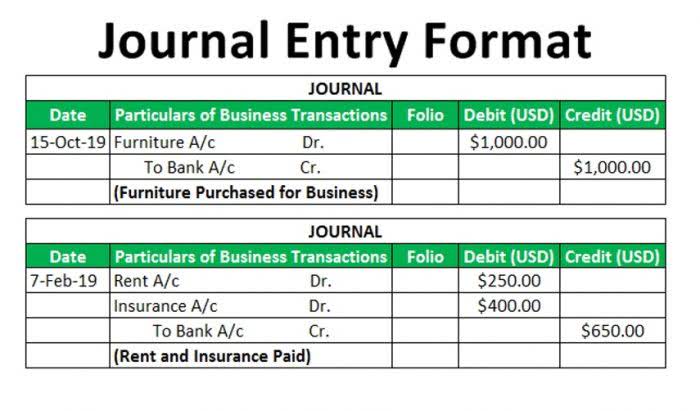Bookkeeping
Financial Planning for Wineries & Vineyards

She’s a historian who chronicles the financial tales of today, proving that understanding our past can indeed shape our fiscal futures. Kara’s ability to juxtapose her historical knowledge with the real-time financial scenarios she encounters brings a refreshing depth to her role. In a world of evolving business landscapes, Kara’s interpretative and analytical prowess aids in not just recounting financial events, but in contextualizing and understanding them. Yet, what sets Hien apart isn’t just his accounting prowess; it’s his academic foundation in Mathematics and Computer Science from San Jose State University. This fusion of disciplines gives Hien a computational edge, allowing him to see patterns, systems, and algorithms behind the numbers, rendering a holistic perspective to his accounting endeavors. As Jennifer continues to evolve in her role, her exceptional blend of skills ensures she remains a vital contributor not only to our firm but also to the wider domain of finance.
Key Financial Metrics for Vineyards and Wineries
This includes the costs of making your wine and purchasing merchandise and goods for resale. One thing that should NOT generally be included in income is sales tax and tips collected from customers. These should be broken out from sales revenue and recorded in liability accounts.
Pre-productive Costs
- Grounded, diligent, and ever-evolving, Isabel is a testament to dedication and professional excellence.
- Variances between the two can highlight areas where the vineyard is overspending or where efficiencies can be improved.
- In John Benjamin, SD Mayer boasts not just a Director of Business Development, but a visionary dedicated to the firm’s continuous ascent in the world of business.
- Gross profit simply describes the total value of sales in a given accounting period without adjusting for their costs.
- Regular reconciliations between bank accounts, sales records, and vendor invoices help you spot inconsistencies before they grow into significant problems.
- In this article, we’ll break down how to obtain the information you need to understand your profits and costs—including relevant accounting basics and strategies to categorize various production costs.
Financial reporting operates under GAAP guidelines and allows your company to remain compliant with policy boards. In contrast, management reporting analyzes department performance as well as its relationship to expenditures and returns on investment (ROI). In other words, management reports are the diagnostics on your winery’s financial health. A well-structured chart of accounts will keep your financial reporting clear and accurate. By sorting your transactions in a meaningful way, your financial reports will be more meaningful.

Managing Cash Flow in Seasonal Production
- This level of detail allows vineyard managers to pinpoint inefficiencies and make more informed decisions about resource allocation.
- This involves setting benchmark costs for various activities and comparing actual costs against these standards.
- Another important aspect of cost accounting in vineyard operations is the use of standard costing.
- As she continues to evolve and grow with SD Mayer, Kelly is undoubtedly set to achieve many more milestones in her illustrious career.
- Federal regulations require detailed recordkeeping, starting with the weight tickets required at harvest and ending when the wine is available for consumption or sale.
- Her role primarily focused on administrative assistance, where she played a crucial part in the preparation of tax returns for individuals.
- Even if these costs do not in themselves lead to an increase in future economic benefits, they may be necessary to allow for future benefits to flow to the business.
Together, accompanied by their two loyal dogs, they make memories, exploring the great outdoors. Whether it’s a weekend getaway or a longer vacation, Josiah and his partner are always on the lookout for the next adventure, making the most of their time together and embracing the beauty of the world. In John Benjamin, SD Mayer boasts not just a Director of Business Development, but a visionary dedicated to the firm’s continuous ascent in the world of business. Some of these changes focus on the ability to accelerate losses and deductions beginning with the 2018 year.
- In the world of auditing and assurance, Elias stands tall with a career that spans over a quarter of a century.
- A stalwart presence at SD Mayer, Greg has been with the firm since its nascent stages in 2013 and brings with him an impressive two-decade legacy in accounting.
- This article provides an overview of some of the wine industry’s unique characteristics that create special accounting, tax, and business risk considerations.
- Her foundational experience as a staff accountant at Hardypaw provided her with keen insights into the intricate world of accounting.
- Julie’s brilliance knows no bounds, as she adeptly manoeuvres between outsourced accounting, tax, and audit departments with unparalleled ease.
Yet, there’s another side to Fadi, one that’s far removed from balance sheets and ledgers. Their adventures range from camping under the stars to the adrenaline rush of soccer. Weekends are special, with hikes up Mount Diablo, soaking in the panoramic views of the Bay area and the mesmerizing cityscape of San Francisco. And if you ever come across breathtaking drone shots capturing the beauty of nature, chances are, they were taken by Fadi, the auditor with an eye for beauty. April Rosario’s blend of professional acumen and personal interests makes her a dynamic and beloved member of our team. Her contributions to the firm are immeasurable, and her spirit of collaboration and excellence continues to inspire those around her.
- For this reason, we keep the equity accounts In our winery chart of accounts template, very generic.
- The simplest way to account for these donations is not to do anything at all.
- His responsibilities encompass vital areas such as balance sheets, financial statements, and managing bill pay/payroll, ensuring accuracy and efficiency at every turn.
- States have different rules related to wine distribution and sales; most states require some variation of a three-tier distribution system made up of a winery, distributor, and retailer.
The Strategic Role of Financial Modeling in Scaling a CPG Brand
Such records provide important ongoing accounting and internal control data about the grapes throughout the production process. Professional wine accounting services, like those offered by Protea Financial, provide expert guidance in managing complex financial aspects of the wine business. They offer services such as financial statement preparation, tax planning, inventory management, and cost analysis. Utilizing these services can improve financial accuracy, compliance, and overall business efficiency, allowing winery owners to focus on production and growth.

What are the advantages of using professional wine accounting services?
While your DTC gross profit margins are typically more attractive, the additional infrastructure and staffing required to sell DTC can offset the apparent benefits. GAAP basis isn’t always required for smaller wineries, it can be a condition for obtaining debt or equity financing from traditional sources, plus it provides other significant benefits. Through the process of capturing costs at the various stages of production and accurately tracking them in the accounting system, owners can gain valuable insight into how to improve their operational efficiency. Some winery accounts use the “Other Expenses” section of the chart of accounts to track their wine production costs which are eventually zeroed out as they are capitalized to the balance sheet. This option can work well and has the advantage of keeping these expenses out of the main section of Profit & Loss if you are only calculating and adjusting COGS once a quarter or once a year. Isolating the costing pools at various stages of production aids in allocating period overhead costs more precisely and allows for more accurate tracking of the component costs of blended wines.
Services for Wineries & Vineyards
In the United States, a farm is nearly always allowed to use the cash basis of accounting, no matter how big it is, and a vineyard is classified as a farm – so, vineyards usually use the cash basis of accounting. Doing so allows them to somewhat defer the recognition of income, so they can delay paying income taxes. A winery is not classified as a farm, since it’s more of a production operation, so wineries usually use the accrual basis of accounting for vineyards and wineries accounting. This difference means that a vineyard and a winery are set up as two separate entities, with the vineyard using the cash basis and the winery using the accrual basis. So, the accountant for a combined operation needs to be conversant with both approaches, and will need to maintain two sets of books. Key components of wine accounting for a winery include cost of goods sold (COGS), inventory management, and production costs.
Major Cost Categories
When calculating labor costs, it can be difficult to pin down the pay of executives and owners to any one specific department, let alone a single vintage. To account for these employees, portion out a slice of the revenue from each department that person regularly attends to. The costs of grapes, bulk wine, glass, and other dry goods must be assigned to separate wines and tracked by SKU. While those costs are being accounted for, it’s also vital to track the movement of your inventory.

Eric became an esteemed member of our firm in late 2017, lending his expertise to our Outsourced Accounting practice. As a manager, he doesn’t merely keep the books balanced and ensure timely payroll, reconciliations, and AR/AP tasks; he plays an instrumental role in shaping the future of our firm. His commitment to excellence is evident as he consistently mentors and guides junior staff members, ensuring they are equipped with the knowledge and skills required for the myriad projects the practice handles. At SD Mayer, we’re known for a holistic approach to small business financials.
 0982.226.306
0982.226.306 duoclieuannam@gmail.com
duoclieuannam@gmail.com Hệ thống cửa hàng
Hệ thống cửa hàng Đăng ký nhận quà
Đăng ký nhận quà

